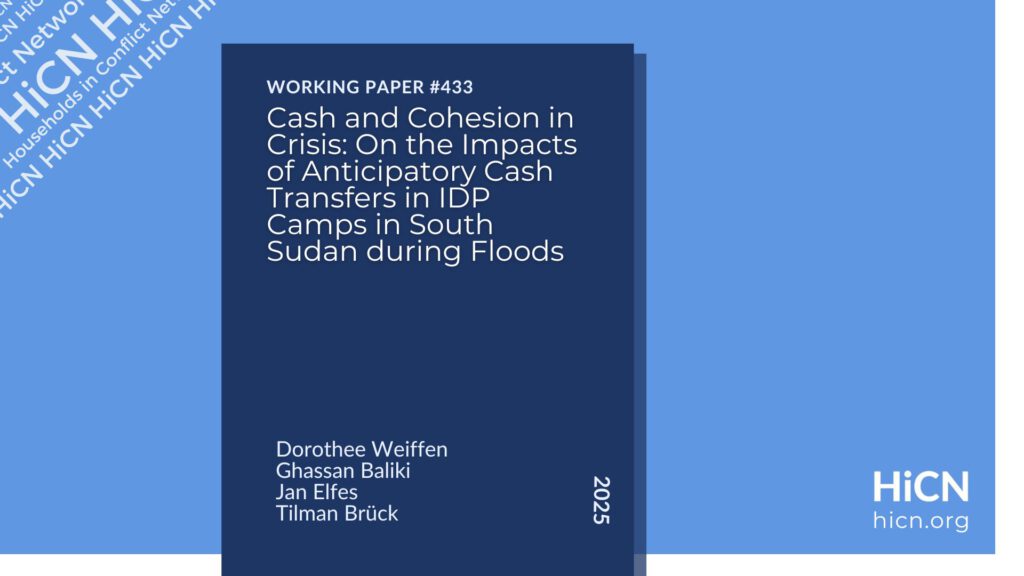
Households living in humanitarian settings face extreme vulnerability to adverse shocks. Cash transfers can reduce this vulnerability and enhance household welfare. However, the potential of anticipatory cash transfers – delivered before the adverse impacts of a shock unfold – in safeguarding welfare and fostering social stability remains underexplored. To address this knowledge gap, we study the effects of a one-off anticipatory cash transfer provided to internally displaced households in Bentiu, South Sudan, at the onset of severe floods. We examine the short- and medium-term impacts of this cash transfer using a quasi-experimental design that closely resembles a random treatment assignment. We utilize three waves of panel data: shortly before and shortly after the intervention (during the flood onset) and six months after the intervention (after the floods have receded). Despite unsatisfied basic needs, the findings reveal preferences for strategic investment over short-term consumption: The intervention did not improve food security or mental health and immediate health gains dissipated post-flood. Instead, households prioritized investments in shelter reinforcement, which reduced severe flood impacts by 13%. Shelter investment unexpectedly contributed to community cohesion, reducing displacement (24%), theft (18%), and conflict (24%). Key mechanisms are lockable doors, shelters that withstand the water, and generally less flood stress, highlighting the critical role of housing in fostering security and social stability in crisis settings.